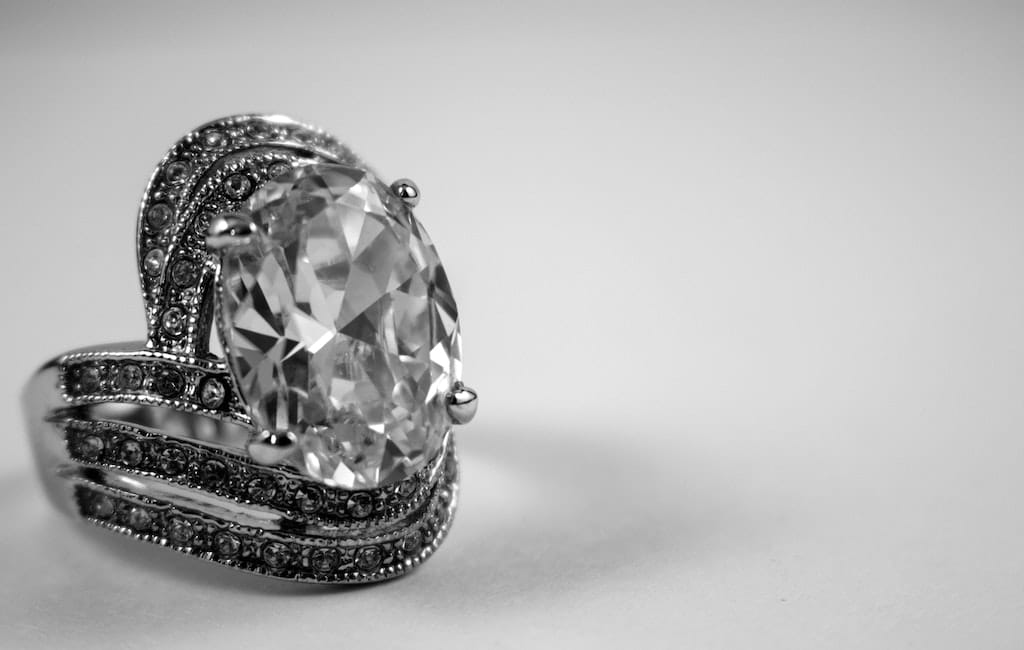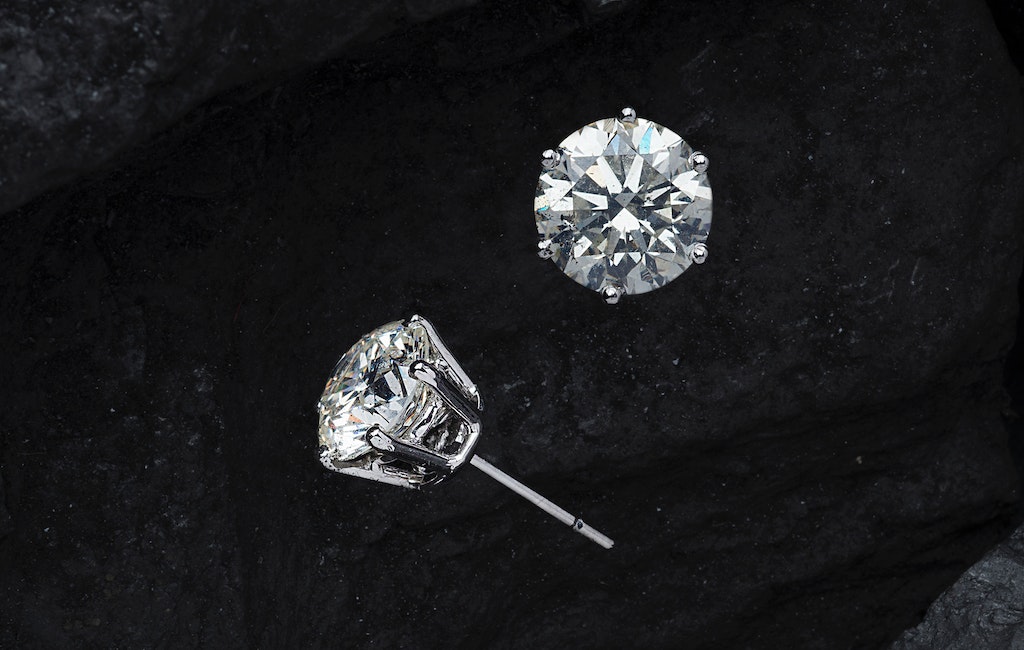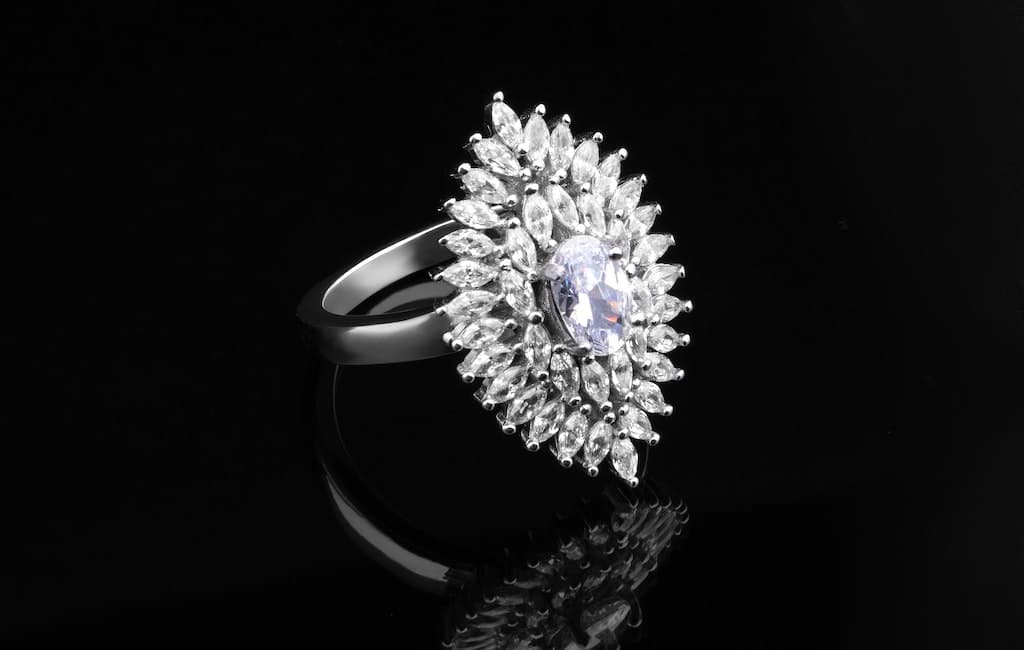Gemstones are substances made from mineral deposits, which are normally found deep beneath the soil. They are a wonderful part of the world, whose existence may not always be explainable (especially considering the fact that they occur in a wide variety, in specific areas all across the earth). There are other gemstones which are not found deep beneath the earth, but rather are formed from organic materials produced by organisms (e.g. pearls produced from mollusks).
Gemstones can be subdivided into two major categories, which are; precious stones and semi-precious stones.
WHAT ARE PRECIOUS STONES?
Precious stones are those kinds of gemstones that are regarded as top tier and high quality (particularly when they are actually of high quality i.e. in terms of their clarity, the purity of their color, accuracy and precision of their cut, and their weight, which is often measured in the form of carats). Precious stones are also usually rare, which is why they are usually in high demand all across the world. Examples of this kind of stones include; diamond, sapphire, ruby and emerald. Amethyst used to be classified as a gemstone, however, large deposits of it were discovered in Brazil years ago and this made it more accessible to the masses, thus reducing its rarity and its consequent perceived worth.

WHAT ARE SEMI-PRECIOUS STONES?
Semi-precious stones are gemstones that are not usually viewed as being in high demand, as they cost a lot less per unit volume, compared to precious stones. Semi precious stones, like other gemstones of higher perceived worth, have a wide range of application in the jewelry making industry around the world; where they are often used in making jewelry pieces such as necklaces, rings, bracelets etc, as well as ornaments used for aesthetic decoration and interior design. However, some of them also have other application which may be industrial in nature; quartz, for instance, is often used in the construction industry, for the making of roads and buildings.
Of all the gemstones in the world, both precious and semi- precious, diamonds are often seen as the most popular and desirable of all.
WHAT ARE DIAMONDS?
Diamonds have been in existence for years. Many of them can be found in areas which have once experienced volcanic eruptions, and they may take millions – and even billions – of years to form.
Diamonds are usually seen as the most desirable gemstone in the world because they are elegant, pretty and – when found in pristine quality – they are also very, very expensive. They are usually formed when pure carbon which exists deep beneath the surface of the earth (hundreds of miles underground, in many cases) is exposed and subjected to extreme forces of heat and pressure.
These extreme forces of heat and pressure work on the pure carbon deposit in order to transform it into diamond atoms. Actually, on a chemical level, what usually happens is that the heat and pressure simply rearranges – or restructures – the pure carbon atoms into a crystal lattice structure which is very rigid and very difficult to infiltrate.
This crystal lattice is the reason why it is difficult for other chemical and physical substances to get into a diamond, even during its process of formation. It is also the reason why the diamond is remarkably hard (it is regarded as the hardest known natural substance in the world), and resistant to physical and chemical changes. Other properties of diamonds include; high electrical resistivity, low coefficient of friction, high strength, low thermal expansion coefficient, high thermal conductivity, resistance to chemical corrosion, biological compatibility and broad optical transparency from ultraviolet to infrared.
Countries where diamonds can be found naturally include; Australia, Brazil, Botswana, Congo, China, South Africa and Russia.

WHAT ARE THE TYPES OF DIAMONDS?
There are different types of diamonds in the world, on the basis of several factors such as weight, size, color, cut and origin. The unique quality of each diamond in terms of cut, clarity, color and carat (i.e. the unit in which a diamond’s weight is measured) goes a long way in helping to classify a diamond.
For instance, where color is concerned, diamonds can be sorted into two major categories, which are colorless diamonds and colored diamonds. Colorless diamonds are the most common types of diamonds in the world (as a matter of fact, most people don’t even know that diamonds can occur in other colors). This type of diamonds is generally seen as flawless, from a purely scientific point of view because the materials responsible for color formation are usually seen as impurities in diamonds. Colorless diamonds are elegant and timeless pieces that appear to go well with any style and color of attire or clothing.
Colored diamonds, on the other hand, are the type of diamonds that come in colors such as yellow, red, blue, black, green, orange and so on. This type of diamond is usually formed when external materials or flaws in the form of physical and chemical substances (other than pure carbon) manage to infiltrate the rigid crystal lattice of a diamond; such infiltration usually takes place while the diamond is being formed. The common culprits for color formation in diamonds include; nitrogen (in the case of yellow diamonds), boron (in the case of blue diamonds), impure carbon (in the case of black diamonds), and hydrogen (in the case of purple diamonds). Green diamonds are formed as a result of exposure to radiation, and no one quite knows what is responsible for the formation of red diamonds.
CAN A BULLET DESTROY DIAMOND?
Due to the diamond’s rigid crystal lattice, it is regarded as the hardest natural substance known to man. This is awe-inspiring, and so a lot of questions tend to occur to people when they really begin to process the information. One of these questions is, “Can A Bullet Destroy A Diamond?”
Amazingly, the answer is yes. A bullet can indeed destroy a diamond.
The reason for this is that while diamonds are hard, they simply are not as tough. This is the reason why they can be cut (albeit with other diamonds), and also why they will shatter or break if they are hit by a bullet, especially in their fault lines or areas where their crystal lattice may be especially weakened.

